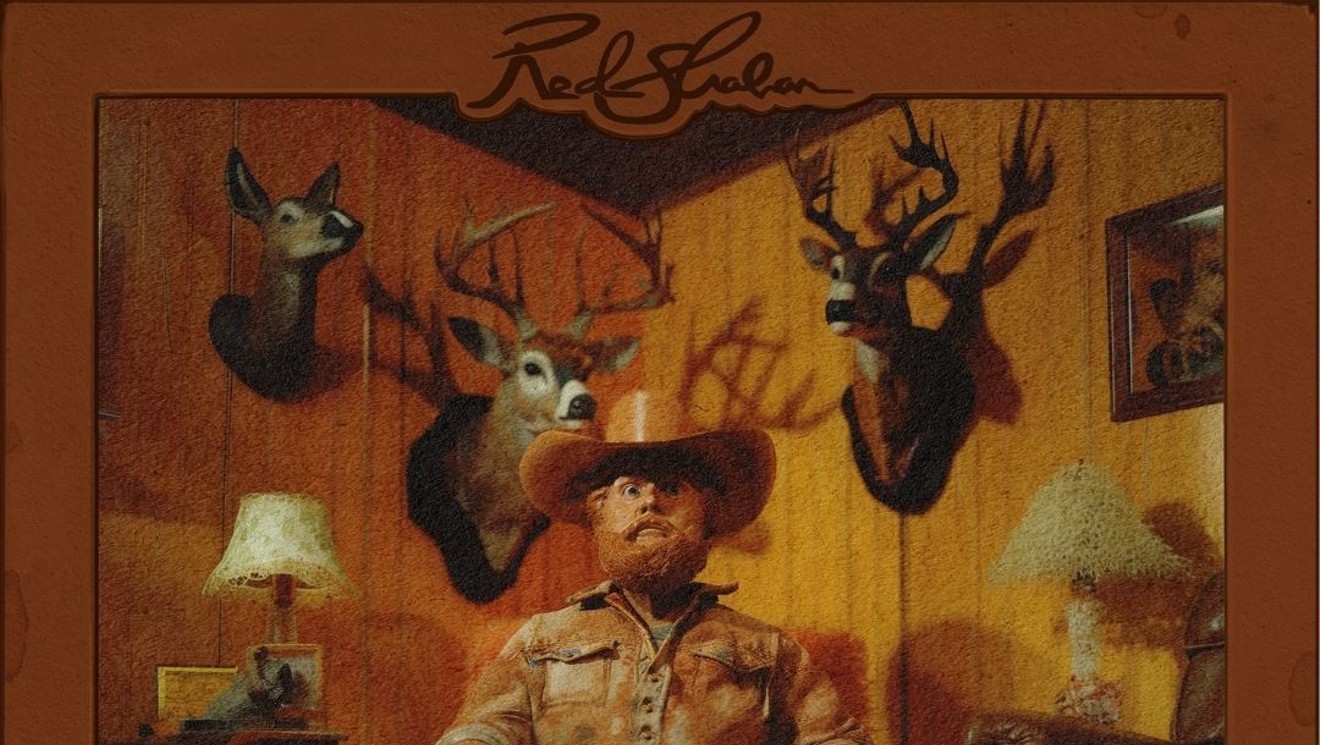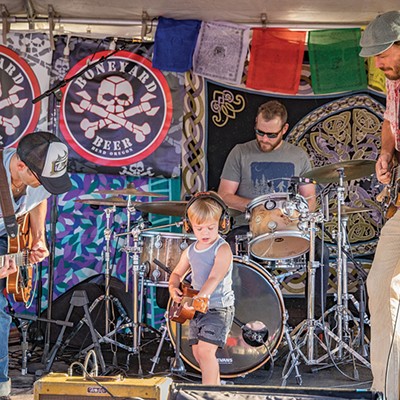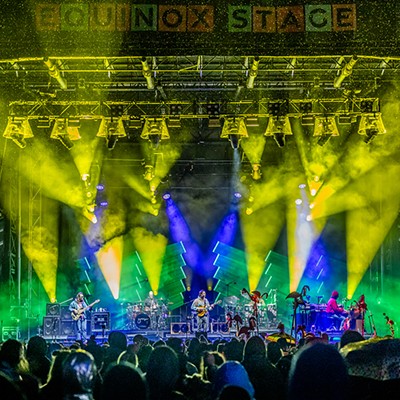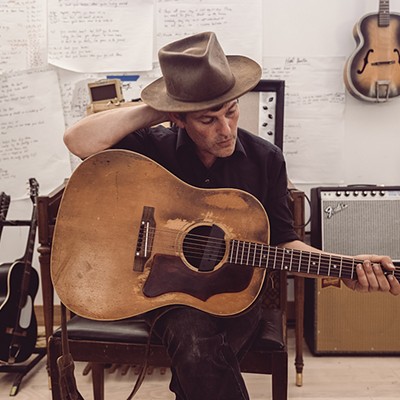On March 9, 2020, I boarded a bus to Seattle with some very mixed feelings. There was a lot of uncertainty in the world at that moment, but what we did know was that a nursing home in Kirkland, a suburban outpost just east of Seattle along the shore of Lake Washington, was possibly the American epicenter of an emerging pandemic.
But on the other hand, The Strokes were playing and I had tickets. It was a month before the release of their long-awaited sixth record, a rare opportunity to see the legendary NYC rockers in the PacNW and experience some of their new music live.
I really wanted to go, but I felt a strange uneasiness attending a massive concert with thousands of strangers when an unexplained contagious disease — that we knew very little about — was killing people in this very community. The concert was still scheduled, which meant there was no getting my money back from Ticketmaster, so I got on that bus, saw a career-spanning set and left energized but still anxious about the unknown. Two days later, all events and gatherings of 250 people or more were banned in Seattle's King County. The rest of the Northwest and nation followed.
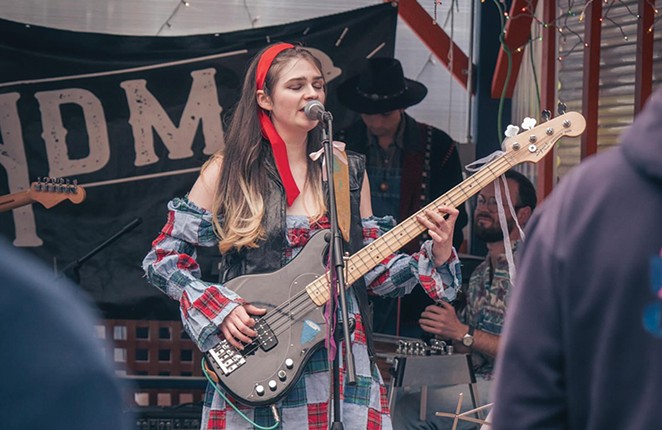
On March 17, 2020, Death Cab for Cutie's Ben Gibbard sat down in front of a webcam in his home studio in Seattle and started live streaming performances every afternoon. Dubbed "Live From Home," he continued for several weeks while hundreds of thousands tuned in from their respective isolation. Like many of us, he felt at a loss about what to do.
After decades of fans "choosing to congregate en masse around our music," Gibbard genuinely wanted to create a sense of solidarity by reassuring people that, "because we're all going through this nightmare together we are quite literally not alone. Our lives and stories are all linked, maybe more now than they have ever been."
As time went on, I watched local musicians — and even entire festivals — live stream sets from more professional settings like club stages or recording studios where the sound was dialed and the video feeds were crisp.
In Central Oregon, the summer of 2020 saw the rise of the High Desert Music Collective, spearheaded by local musician Charlie Utter and founded upon a commitment to "a real community idea of music," he says. Originally formed just pre-pandemic, the team rallied to support the Central Oregon music community during unprecedented times.
Utter and longtime Bend musician Jeshua Marshall put out a call for original songs, resulting in HDMC's first project: the "High Desert Calling" compilation, which brought together 59 individual artists from the area in July 2020. Spanning genres from rock to folk to blues to hip-hop and more, the release was a snapshot of Central Oregon's thriving music scene during a time when these musicians were largely invisible.
"At that moment during the pandemic, it felt like we were just putting out a beacon to the world: This is the kind of music we got going on here," Utter recalls.
That August, Utter was feeling energized by the burgeoning idea of a musician-led organization — a collective run by artists for artists — and formalized High Desert Music Collective as a business by starting an LLC and creating a paid membership platform that included discounts at local businesses and other freebies. But the bigger idea was "that by becoming a member, you're putting your money where your mouth is on some level and saying you want to be a part of something bigger than yourself for the benefit of the scene as a whole," Utter says.
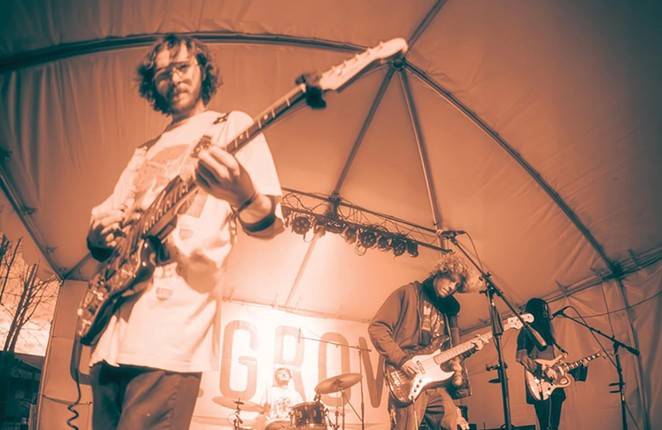
Next, the collective started putting on gigs at Silver Moon Brewing, Bunk+Brew and other small venues. "Every show we put on, we live streamed," Utter says. This continued for a year or so and, "we were able to pay over 200 artists for performances in that first year," Utter says, as HDMC quickly grew to more than 100 members.
In 2024, HDMC's latest pivot is led by Scottie McClelland, known as the eponymous Box Kid from rising Bend rockers Billy and the Box Kid (who are playing at the Source Weekly's Best of Central Oregon party Aug. 14). HDMC's mission has always been "to give people this opportunity to grow personally and professionally," Utter explains, and when he moved back east, McClelland took on the role of creative director, a boots-on-the-ground operative who's been booking concerts, organizing charity events and leading the charge to rebrand and relaunch HDMC's website.
McClelland defines today's HDMC model as "a mission-based business. All the money that comes in from events that we do, or membership from our website, goes to putting on events and paying people to put on those events and run the organization." This includes all sorts of roles in the local music ecosystem, from artists to sound and light engineers to graphic designers.
HDMC has been known for its 4/20 events, which McClelland has expanded upon with this year's two-day, multi-venue HomeGrown Music Festival that featured more than 30 local acts. He's received grants from the Bend Cultural Tourism Fund to support these endeavors, all in an effort to funnel money to musicians and event production staff. The collective also sponsors a stage at Bend Roots Revival and has raised money and supplies for charitable causes like wildfire relief, the homeless shelter Bethlehem Inn with last month's Rock For Socks, and the American Foundation for Suicide Prevention with Keep Your Head Up — the second annual fundraising concert happens on Saturday, Sept. 7 at Bunk+Brew.
"After Covid, things have kind of boomed here, especially for the music scene," McClelland says, but, "it's really hard for local bands to get noticed or play shows where there are people there to see them. I wanted to help change that, and not only for my band, but for other bands involved in the local music scene." He began to explore how "to create a new way for HDMC to help the community" and settled on redesigning the website. "The general idea of this new website is a booking platform that connects venues to artists."
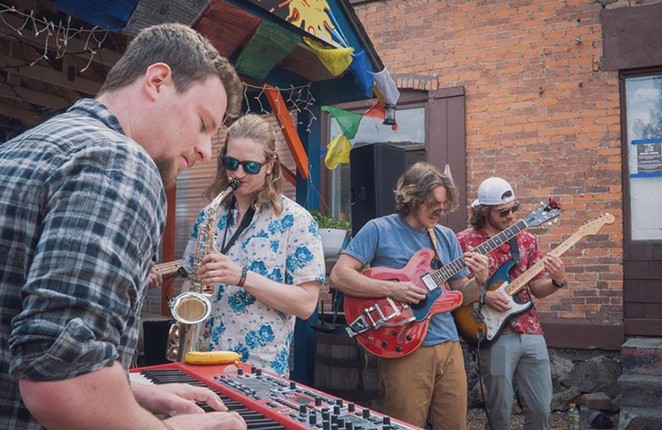
"The basic idea is creating a database of local artists," McClelland says. "Everyone that's involved in HDMC could be viewed by local venues when they're booking shows." Artists will have self-managed profiles with photos, a calendar and basic information talent buyers may need. Venues will also be able to share what dates are available. It's all an attempt to advocate for local musicians and streamline the gig-getting process. "And it will save people time and energy to use this system in order to book their shows. I hope this platform can also educate people," how the music business works, he adds.
On Sunday, Aug. 11, McClelland, along with web developer Chad Crowell (bassist in Astronot and Dad Bods) and Jeff Bethke (guitars and vocals in the husband-and-wife duo So Much Closer) hosted HDMC members at the Volcanic Theatre Pub to show off the functionality of HDMC's new site, answer questions and solicit input.
"We're looking for feedback on how it can serve you better," Crowell told the members in attendance, emphasizing that HDMC is seeking to build an engaging platform that truly creates value for local musicians by advocating for them.
It's a sensible evolution for a group borne of the pandemic and Utter's vision to "facilitate connections between local businesses, local artists and local venues." High Desert Music Collective believes that if you invest in your community, it'll come back to you.
—Learn more about the High Desert Music Collective and see its redesigned website at highdesertmusiccollective.com (new website live as of Aug. 19) or contact the group at [email protected].



